🍊 Monday Gazette: July 7, 2025
Quiet week at City Hall, Museum of Riverside renovation begins, mayor urges renewed commitment to civility and respect.

The Landmarks Club of California convened at the Mission Inn in Riverside from June 5 through 7 in 1916. The Landmarks Club was formed in 1895 under the leadership of Charles F. Lummis and Arthur Benton to preserve historic sites throughout California, starting with the California Missions. Twenty-one years after the formation, Lummis was still the president. Other officers attending the Riverside convention included U. S. Senator James Phelan; Frank A. Miller, owner of the Mission Inn; John S. McGroarty, author of the Mission Play; and Arthur Benton, architect of the first two wings of the Mission Inn.
On the agenda for the conference on Tuesday, June 6 was the dedication of the newly constructed St. Francis Fountain at the foot of Mt. Rubidoux on the west side of the mountain near the bridge crossing the Santa Ana River.
At 10 a.m. that morning, members of the Landmarks Club, representatives from both the Riverside Humane Society and the Audubon Society, officials from the Roman Catholic Church, and many citizens of Riverside gathered for a ceremony to dedicate the fountain and shrine to St. Francis of Assisi, noted lover of animals and birds.
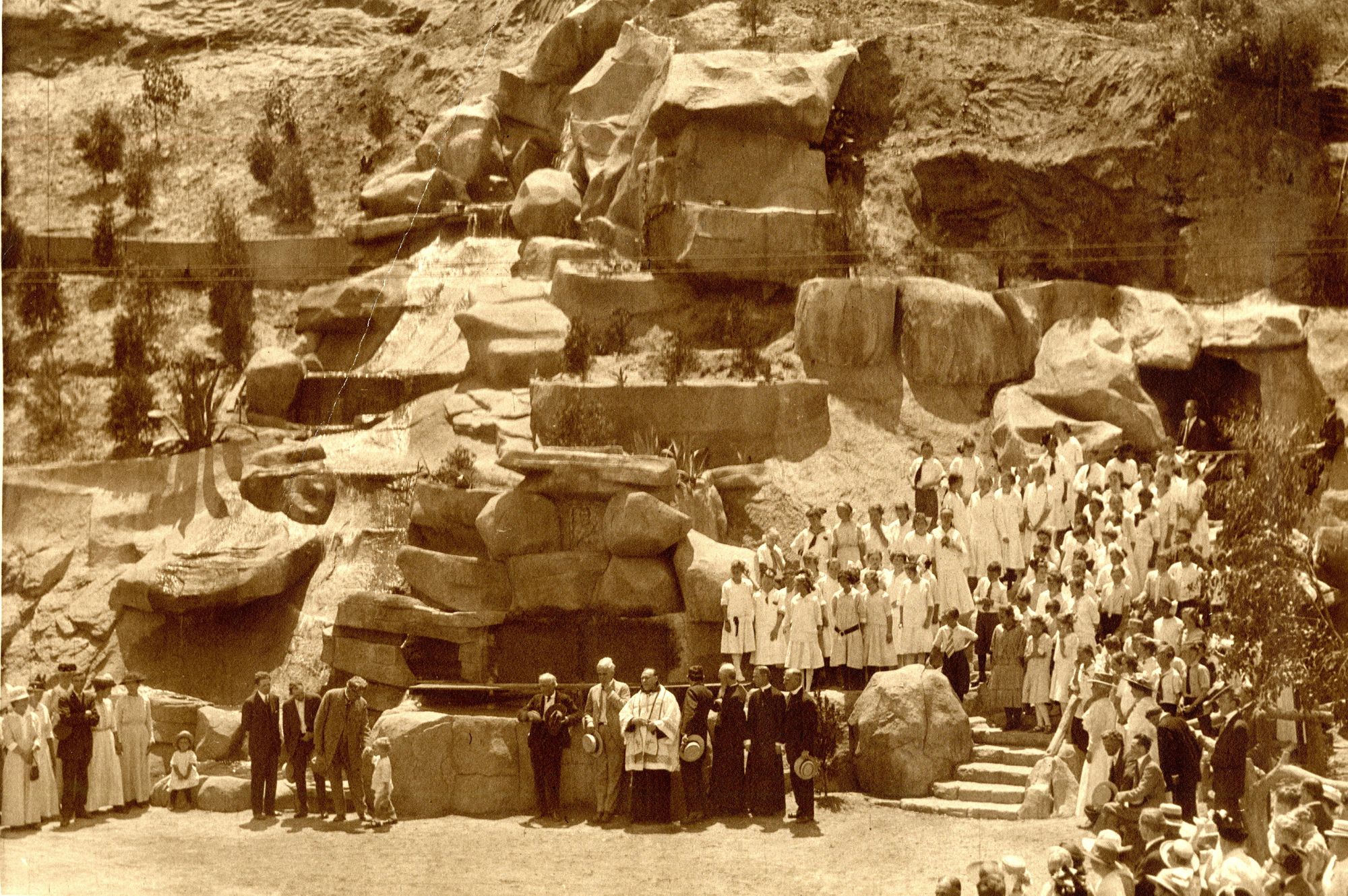
The ceremonies on that bright morning were emceed by Mayor Oscar Ford. Over a hundred seventh and eighth-grade students from Grant School began the rites with two songs. Charles M. Loring, the tree planter and industrialist from Minneapolis who had made Riverside his winter home, gave a brief history behind the St. Francis Fountain project. (Loring building still stands at the corner of Mission Inn Avenue and Main Streets, and Loring Park is located just north of the bridge going over Mission Inn Avenue at the base of Mount Rubidoux). Miss Margaret McKee from Los Angles perched on the edge of the basin and whistled Mendelssohn’s “Spring Song” and the “Mocking Bird.” Other speakers included Mrs. David Starr Jordan, who read a paper written by her husband, who could not attend. Jordan remarked that St. Francis was a lover of birds. One purpose of the fountain and basin was to provide a watering place for birds and other animals. A simple but impressive dedication was under the direction of Father Theophilius, superior of the Franciscan community, and assisted by Father Zephrin, a Franciscan historian, and other Franciscan priests.
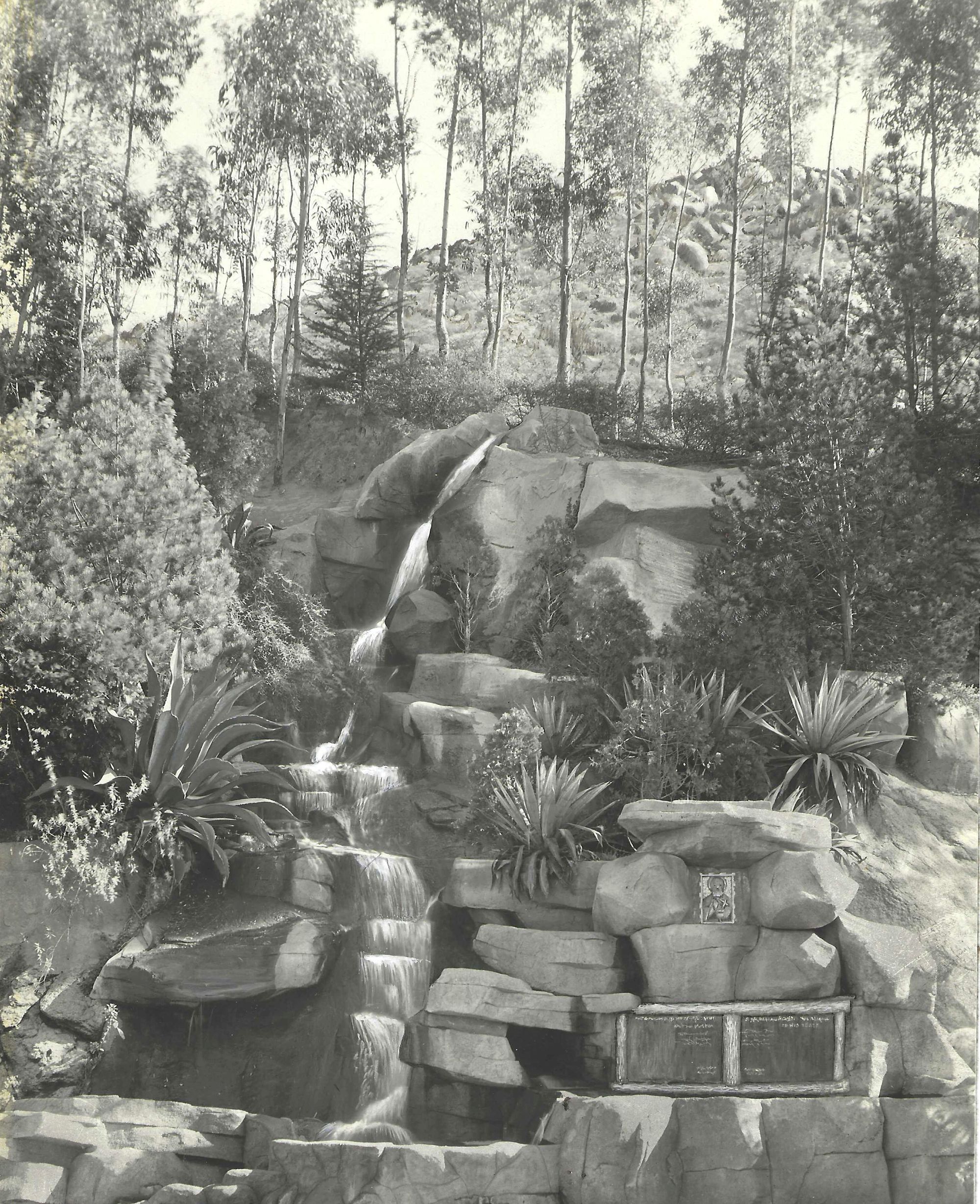
The shrine and cascading fountain were designed, by Francois Scotti, a famous French artist and sculptor, in concrete to look like wood or natural stone. Charles Loring had seen an exhibit of Scotti’s work at the San Diego Panama Exposition and suggested that he design a cascade for Riverside and Minneapolis. Already in August of the previous year, Scotti was at work planning the grotto and waterfall that would greet the traveler as they entered the city from the west. The work was carried out under the leadership of the Huntington Park Association and financed through private funding. Major contributors were the Humane Society, the Audubon Society, Charles Loring, and Frank Miller.
The shrine consisted of the central faux rock portion with the waterfall to the left (north) and a small grotto with a door to the right. A mosaic was placed on the top of the shrine with a place for two tablets. The tablets were not present in time for the dedication. The bronze tablets for the Humane Society and the Audubon Society arrived shortly after the dedication and were placed into their proper locations.
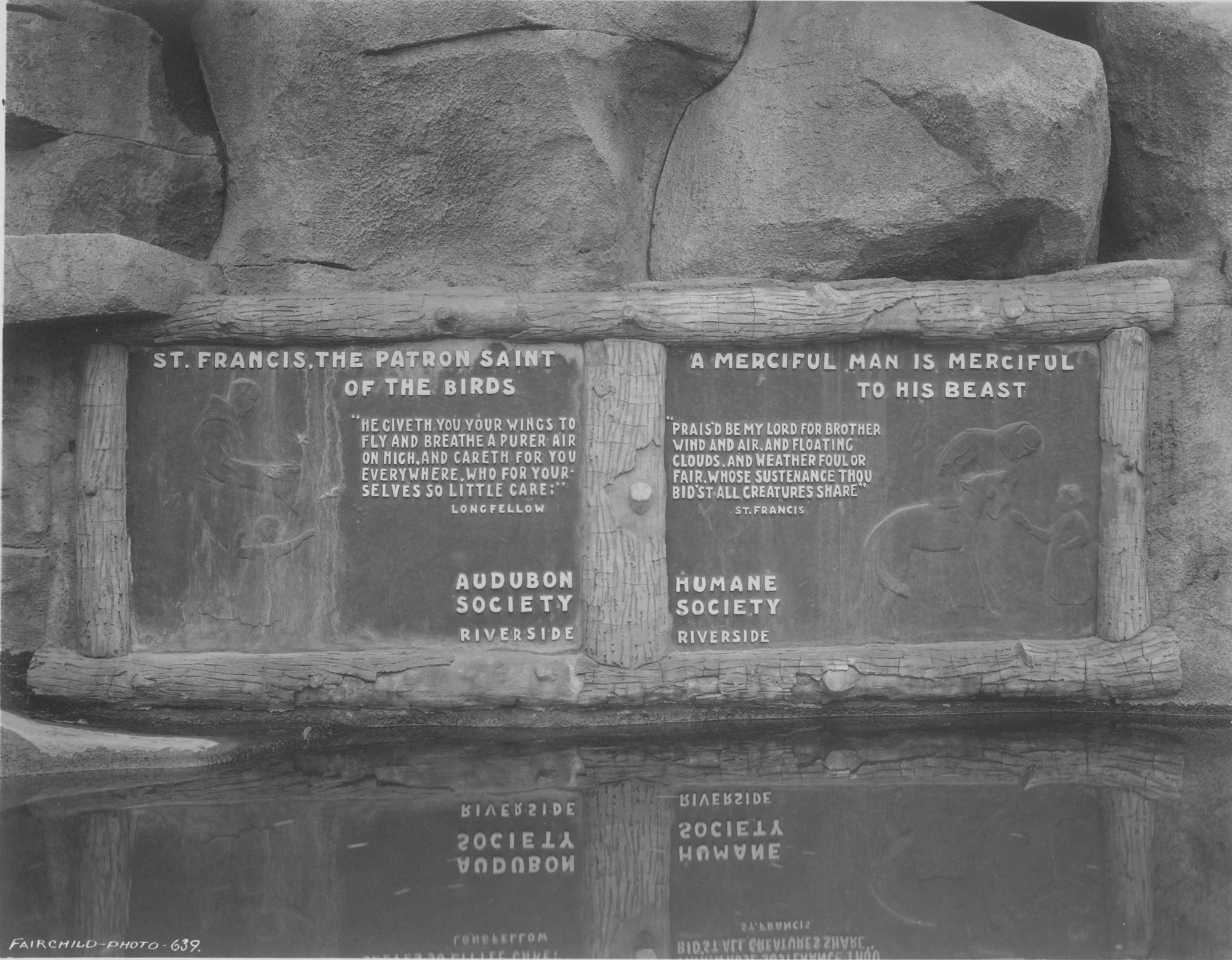
Over the years, people would stop at the base of Mt. Rubidoux at the site of the St. Francis Fountain and rest in the peaceful setting. A trail behind the fountain leads to a back path up to the top of the mountain. In 1932 the Riverside Lion’s Club added the stone-covered well, which contained a drinking fountain.
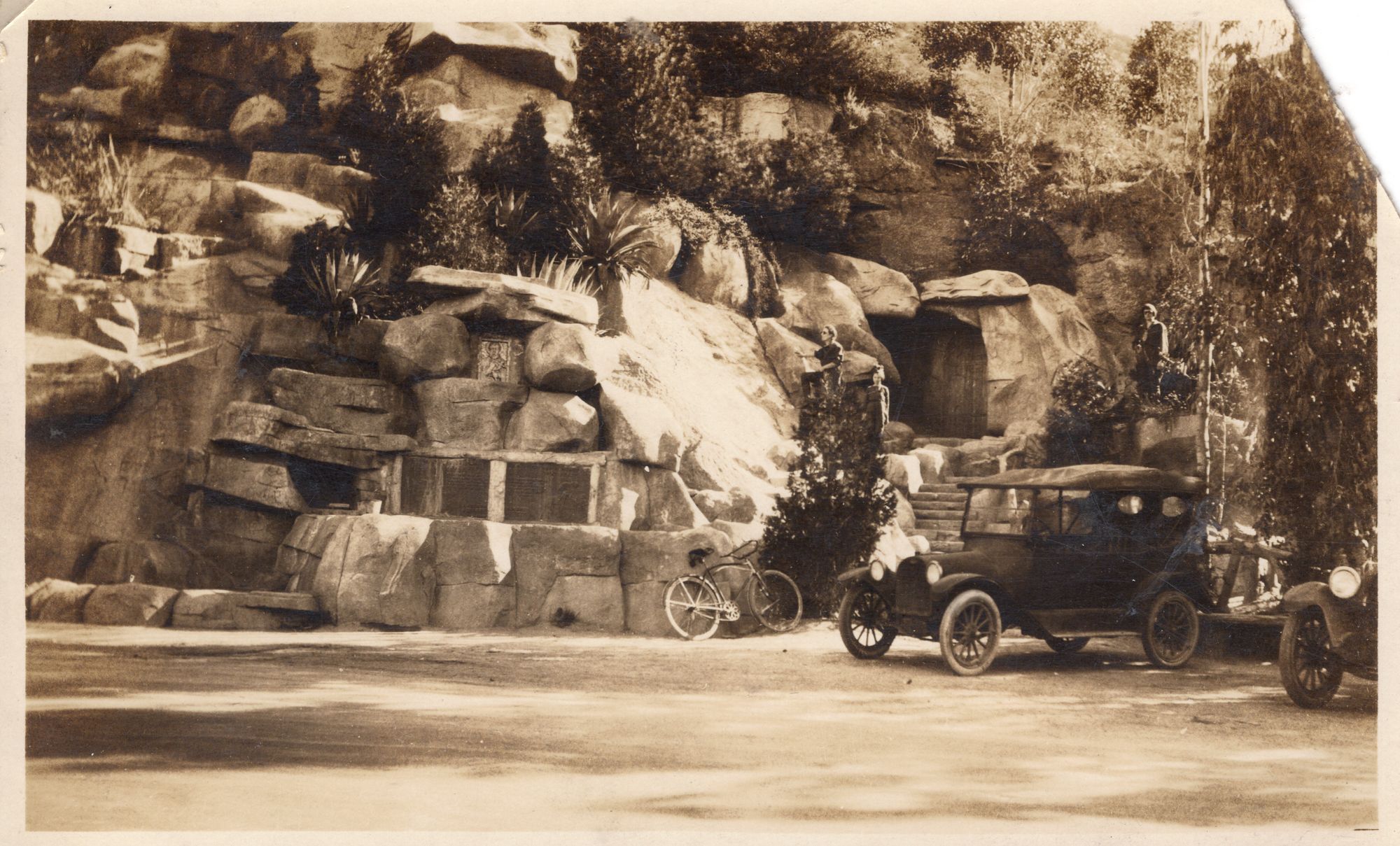
From the time that the St. Francis Fountain was dedicated in 1916 until 1958 when the new bridge across the Santa Ana River was located slightly to the north, and the road at the base of Mount Rubidoux straightened, the first view that visitors saw was the water flowing down the mountain at the St. Francis Fountain and for many of those years the sign “RIVERSIDE” high above the shrine slightly to the left. After crossing the river, the highway (Old Highway 60) became Buena Vista Drive and turned left or north to go around the mountain and then turning to the right or east at the north edge of the mountain. Upon crossing under the Buena Vista Bridge, the highway became Seventh Street (today, Mission Inn Avenue).
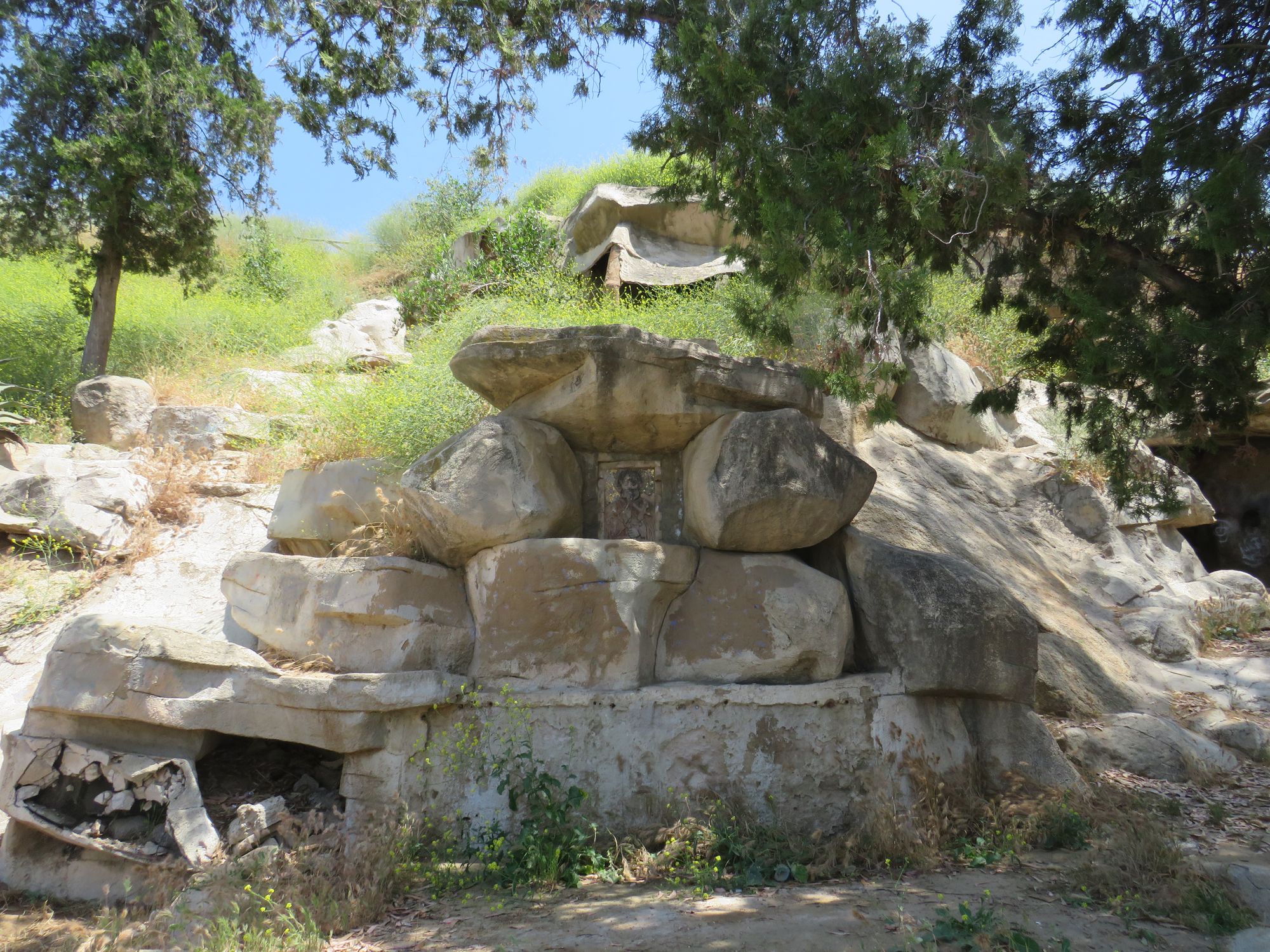
Over the years, the fountain has fallen into disrepair. Tom Patterson, a local historian and newspaperman, wrote in September of 1982, “St. Francis Fountain rebubbles with sparkle.” At that time, the water flowing down the mountain was restored, and much of the rock was repaired. Now forty years later, another restoration project is in order. The St. Francis Fountain and surrounding area are in terrible condition.
The fountain is part of City of Riverside Landmark #14, Buena Vista Drive and Carlson Park. The city website describes this site: “This landmark consists of the remaining towers of the Mission Revival style bridge that was completed in 1923 across the Santa Ana River west of Mt. Rubidoux. Also included are the Raincross streetlights, the waterfall, and the decorative plantings installed on Mt. Rubidoux when the city widened the bridge in 1931. A new bridge, slightly north of the original site, was constructed in 1958.”
The Riverside parks department is well aware of the situation and has written grants to include repair work for the St. Francis Fountain and surrounding area in present-day Carlson Park, along with the whole Riverside Gateway Parks project along the Santa Ana River. I have spoken to Alisa Sramala, park project manager, and she is excited about the prospects. People need to get behind the park department and encourage them as they work on the refurbishing project at the base of Mt. Rubidoux so that this historical site which once greeted visitors to the city can once more be proudly viewed.
Let us email you Riverside's news and events every morning. For free!